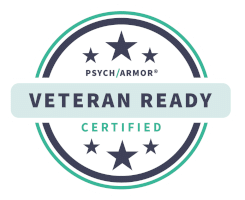Approximately half of U.S. adults will develop a mental illness at some point in their lives, according to Mayo Clinic. In the past, many suffering individuals received inadequate treatment or were kept secluded by loved ones. In modern society, thankfully, the stigma associated with mental illness has decreased significantly, and families willingly seek appropriate help.
Still, knowing when to intervene can be difficult, even for those with the best of intentions. With one in four adults suffering from a mental illness each year, many people are close to someone who may be suffering. Understanding the warning signs, symptoms and possible outcomes of mental illness can help family members and friends determine how to detect a loved one’s mental illness and when to take action.
Possible outcomes of untreated mental illness
Mental illness can affect an individual’s capacity for coping with everyday life, including the ability to excel at work or school, maintain healthy relationships and provide necessary self-care. Mental illness is among the leading causes of disability and, left untreated, can cause severe problems with behavioral, emotional and physical health, Mayo Clinic notes.
Negative outcomes of untreated mental illness can include:
- Isolation from friends and loved ones.
- Severe disability or death.
- Misuse of alcohol, drugs or tobacco.
- Absences from school or work.
- Financial problems.
- Violence to self or others.
- Medical problems, including heart disease.
- Extreme sadness.
- Propensity to become ill due to a weakened immune system.
- Problems in relationships.
- Discrimination or stigmatization.
Understanding risk factors
Risk factors potentially affecting mental health can manifest at any stage of life, the World Health Organization reports. Factors that may increase the risk of mental health issues include:
- Major stressful life events, including the death of a loved one, job loss or financial difficulties.
- Serious medical conditions.
- Brain damage resulting from a head injury or other serious injury.
- A family member who suffers from mental illness.
- Prenatal trauma such as exposure to drugs, alcohol, toxins or viruses.
- Childhood abuse or neglect.
- A lack of healthy relationships.
- A prior episode of mental illness.
- Trauma, including being a victim of assault.
Chronic stress can significantly increase the likelihood of mental illness, PsychCentral reports, citing a number of studies that correlate stress with mood disorders including depression and anxiety. Stress also is a very common health concern, the American Psychological Association found; two-thirds of people experience physical symptoms related to stress on a regular basis, and 63 percent suffer psychological effects.
Recognizing symptoms
The American Psychiatric Association notes that individuals suffering from serious mental illnesses such as bipolar disorder and schizophrenia often exhibit telltale signs early in the development of the conditions. Family members, teachers, friends and others may recognize that something seems amiss about an individual’s thoughts, feelings or behaviors before an illness fully manifests. When individuals seek treatment early in the development of illness, chances increase of reducing the severity or even preventing a major episode of mental illness.
With more than 200 forms of mental illness currently classified in medical literature, symptoms can vary significantly among patients, Mayo Clinic notes. Symptoms can affect behaviors, thoughts and emotions. Feeling sad or “down” over a period of time and without a clear cause can serve as a signal, as can major changes in personality.
In addition, confusion or a lack of concentration ability may point to a problem. Some sufferers experience extreme mood swings, while others permanently withdraw from friends, loved ones and activities they previously enjoyed. Others may experience extreme guilt, or they may be fearful or worried on a regular basis.
In some people, symptoms may include low energy or sleep problems, or they may experience significant stress and an inability to cope with daily life. Sufferers may exhibit changes in appetite or in sex drive, and they may begin abusing alcohol or drugs. Some may find it difficult to relate to people or understand certain situations. Symptoms of mental illness also may appear in the form of physical problems, including headaches or pain in the stomach, back and other areas of the body.
While one or two symptoms alone are not necessarily evidence of mental illness, several symptoms experienced at once may indicate a problem, the American Psychiatric Association notes. If symptoms appear to be affecting an individual’s ability to work, study or to relate to other people, a mental health professional should be consulted.
When to act immediately
In some cases of mental illness, serious warning signs warrant immediate action by friends, loved ones, colleagues and others. As the American Psychiatric Association notes, thoughts that are suicidal, violent or homicidal necessitate immediate treatment from a mental health professional. In addition, delusions or detachment from reality, paranoia, hallucinations, and extreme hostility or anger warrant immediate action.
In cases of suicidal or violent thoughts or behavior, Mayo Clinic advises immediately calling 911 or a local emergency number. After an immediate crisis is averted with intervention from authorities and mental health professionals, loved ones may wish to seek support from other family members, close friends and spiritual leaders.
Experts note that suicidal or homicidal thinking will not improve on its own and always requires intervention from trained medical professionals.
Respecting boundaries and dignity
Fortunately, most cases of mental illness do not involve potential violence and do not require immediate action from others. However, intervention by loved ones often is needed to avert potentially serious effects as illness progresses.
While it’s important that those close to someone suffering from mental illness be honest and point out changes in behaviors and attitudes, respecting boundaries and individual dignity also is critical in long-term outcomes.
When discussing issues related to a possible mental illness, loved ones should be careful to use neutral language and not make statements that might be perceived as belittling or unsupportive, advises the Menninger Clinic. It’s vital to emphasize love and concern for the individual, along with a belief in the importance of receiving treatment.
Loved ones shouldn’t make assumptions about an individual’s cognitive abilities or propensity to violence in the absence of evidence. Through honest dialogue, they should work to persuade the individual of the benefits of treatment rather than attempting to cajole or force.
Those who are close to someone suffering from mental illness should understand that their friend or loved one is going through a difficult, frightening time and is likely experiencing significant stress. It’s wise to display a basic attitude of compassion, understanding and willingness to let the individual make decisions about treatment.
What steps can loved ones take?
In the absence of alarming symptoms such as suicidal thoughts or language, loved ones still can play a major role in the treatment of a mentally ill individual. Self-treatment without professional intervention typically is not effective, and friends and family members should encourage their loved one to seek treatment from a qualified medical professional.
Research shows that early intervention can help prevent a first psychotic episode and subsequent hospitalization. Even in cases in which an individual isn’t yet experiencing a diagnosable mental illness, treatment is unlikely to cause harm and may significantly help in warding off a serious mental health condition. Loved ones should encourage the affected individual to undergo a diagnostic exam with a trained professional and to learn more about signs and symptoms that can indicate a problem. They also can assist in monitoring the individual for symptoms that may indicate a need for more-extensive care.
If an individual is diagnosed with a mental illness, friends and loved ones can provide support in the following ways:
- Keeping active. Loved ones can encourage an individual suffering from mental illness to stay physically active, which can help relieve symptoms; they can offer to go along for walks, swims and other active outings.
- Sticking with a treatment plan. Providing gentle reminders can help an individual who is undergoing treatment remember to take medications as scheduled and to attend therapy sessions.
- Coping with day-to-day life. Loved ones can help significantly by offering to take on tasks that might overwhelm someone suffering from a mental illness. Offering to care for pets or assist with housework may be appreciated during a recovery period.
- Participating in counseling. Family counseling and problem-solving groups can serve as significant elements in an individual’s treatment.
- Staying positive. Friends and loved ones are critically important in helping someone undergoing treatment keep a positive attitude. Messages of optimism, support and love can aid in keeping symptoms under control and, ultimately, recovering.
Loved ones can make a difference
Watching someone suffer with mental illness can cause feelings of emotional stress, guilt and helplessness. But by honestly discussing the situation, providing support and taking immediate action when warranted, friends and family members can take an active role in a loved one’s successful treatment.
Pasadena Villa’s Smoky Mountain Lodge is an adult intensive psychiatric residential treatment center for clients with serious mental illnesses. Pasadena Villa’s outpatient center is located in Raleigh, North Carolina. We also provide other individualized therapy programs, step-down residential programs, and less intensive mental health services, such as Community Residential Homes, Supportive Housing, Day Treatment Programs and Life Skills training. If you or someone you know may need counseling on mental health services, please fill out our contact form or call us at 407-215-2519 for more information.
Sources:
- MayoClinic.org
- Epigee.org
- Who.Int
- Psychiatry.org





